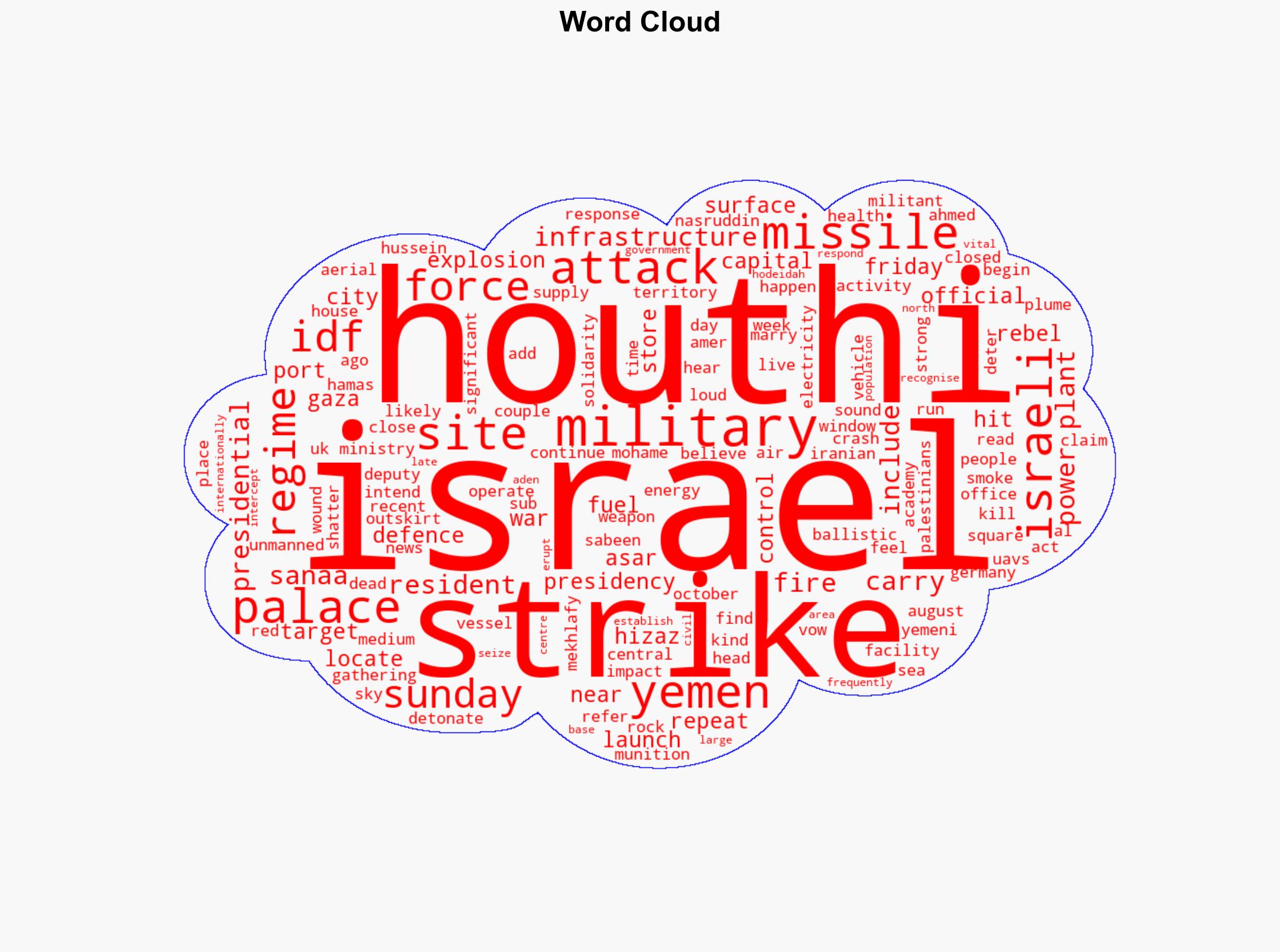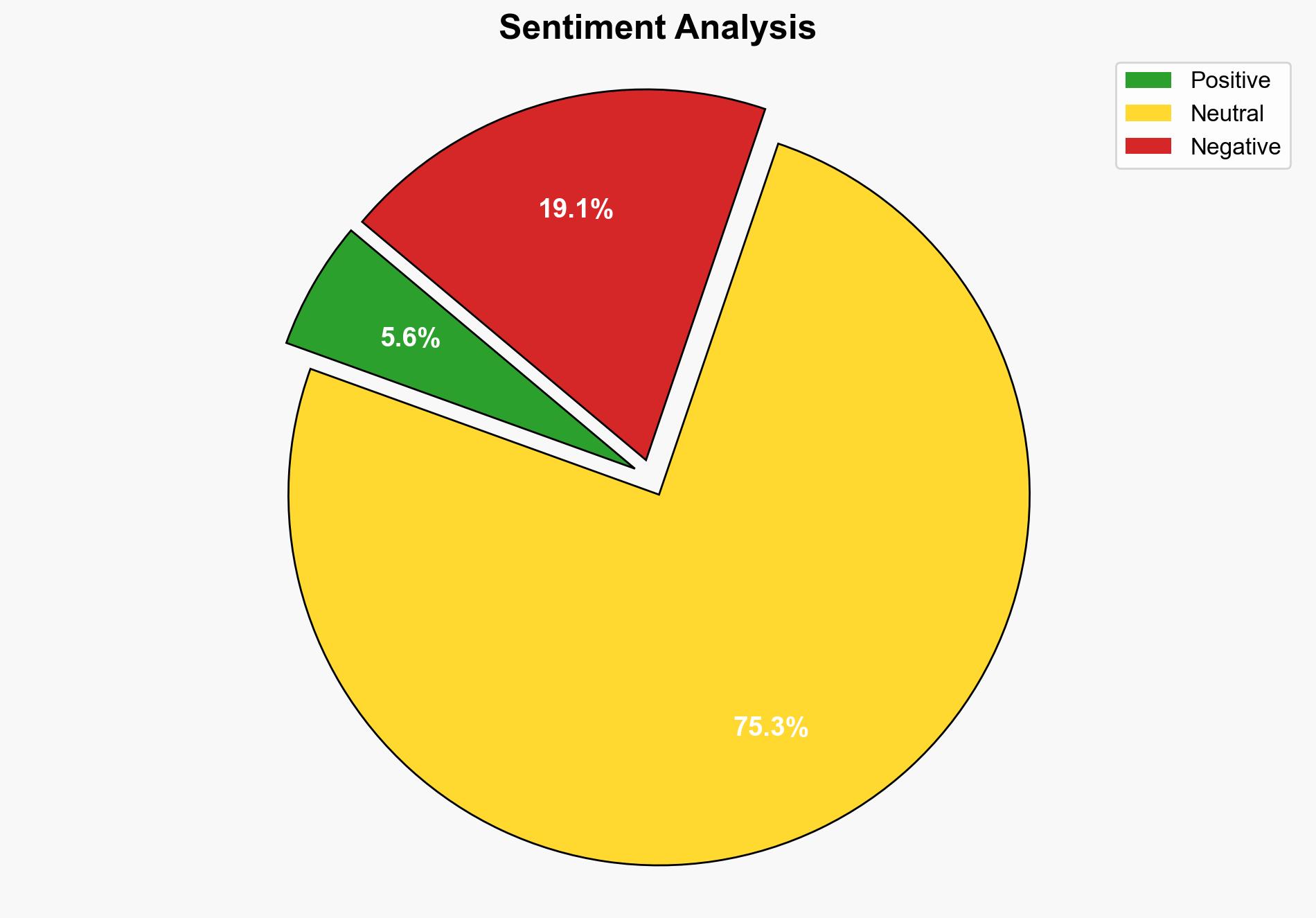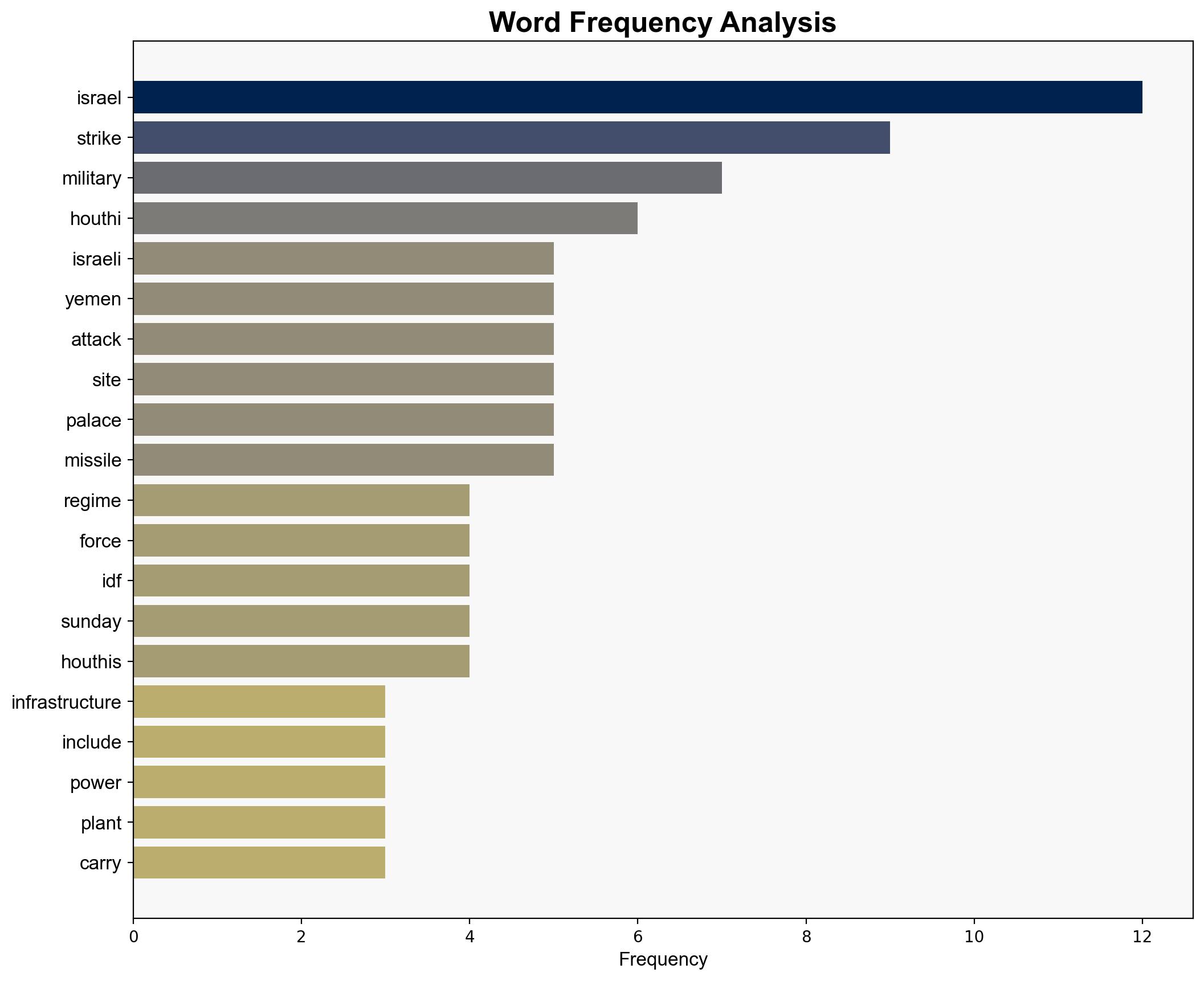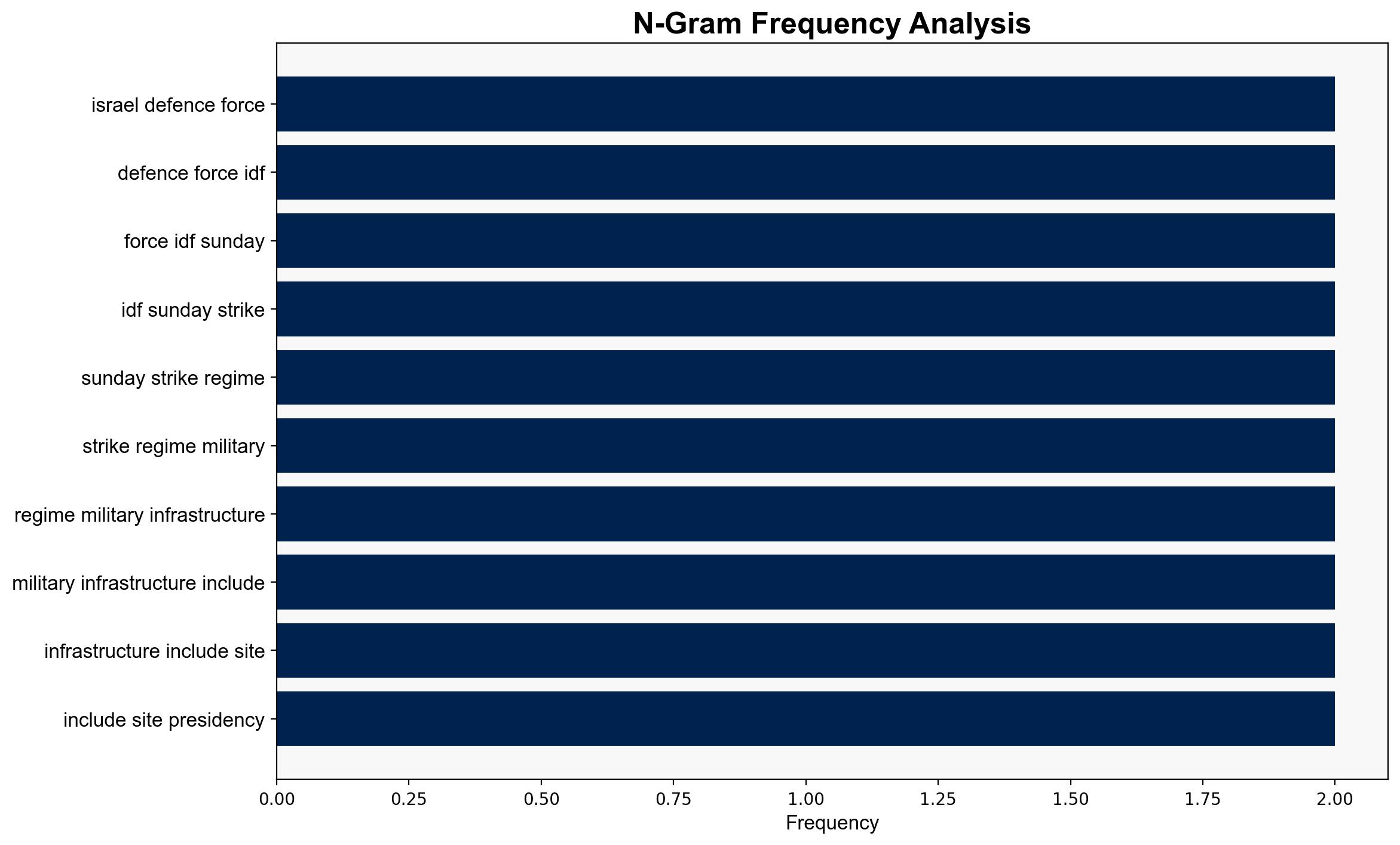Israeli military strikes Houthi regime in Yemen after ‘repeated attacks’ – Sky.com
Published on: 2025-08-24
Intelligence Report: Israeli military strikes Houthi regime in Yemen after ‘repeated attacks’ – Sky.com
1. BLUF (Bottom Line Up Front)
The Israeli military’s strikes on Houthi targets in Yemen are a direct response to missile and UAV attacks on Israeli territory. The most supported hypothesis is that Israel aims to deter further Houthi aggression and disrupt their military capabilities. Confidence level: Moderate. Recommended action: Monitor Houthi responses and regional alliances to anticipate further escalations.
2. Competing Hypotheses
1. **Deterrence and Disruption Hypothesis**: Israel’s strikes are intended to deter the Houthi regime from continuing its missile attacks and to disrupt their military capabilities, thereby reducing immediate threats to Israeli security.
2. **Strategic Signaling Hypothesis**: The strikes serve as a broader strategic signal to Iran and its proxies, demonstrating Israel’s willingness to engage militarily beyond its immediate borders to protect its national interests.
Using ACH 2.0, the Deterrence and Disruption Hypothesis is better supported due to the direct correlation between Houthi attacks and the subsequent Israeli military response, as well as the tactical nature of the targets hit.
3. Key Assumptions and Red Flags
– **Assumptions**: It is assumed that the Houthi attacks were directly ordered by their leadership and not rogue elements. It is also assumed that the Israeli strikes will effectively deter future attacks.
– **Red Flags**: The potential for misattribution of attacks or miscommunication between involved parties could lead to unintended escalation. The absence of direct statements from Iranian officials leaves their involvement ambiguous.
– **Blind Spots**: The internal dynamics within the Houthi leadership and their decision-making processes remain unclear, as does the full extent of Iranian influence over Houthi military actions.
4. Implications and Strategic Risks
The strikes could escalate tensions in the region, potentially drawing in other Iranian-backed groups. There is a risk of retaliatory attacks on Israeli or allied interests in the region, including maritime routes. Economically, disruptions in the Red Sea could impact global shipping lanes. Geopolitically, this may strain Israel’s relations with countries sympathetic to the Houthi cause or those advocating for a diplomatic resolution to the Yemeni conflict.
5. Recommendations and Outlook
- Enhance intelligence-sharing with regional allies to monitor Houthi movements and Iranian support networks.
- Prepare for potential retaliatory actions by securing critical infrastructure and increasing maritime patrols.
- Scenario Projections:
- Best Case: Houthi regime ceases attacks, leading to de-escalation.
- Worst Case: Escalation into broader regional conflict involving multiple state and non-state actors.
- Most Likely: Continued tit-for-tat exchanges with intermittent periods of heightened tension.
6. Key Individuals and Entities
– Hussein Mohame: Yemeni resident near the presidential palace.
– Ahmed Al Mekhlafy: Resident affected by the strikes.
– Nasruddin Amer: Deputy head of the Houthi media office.
7. Thematic Tags
national security threats, regional conflict, military strategy, Middle East stability





